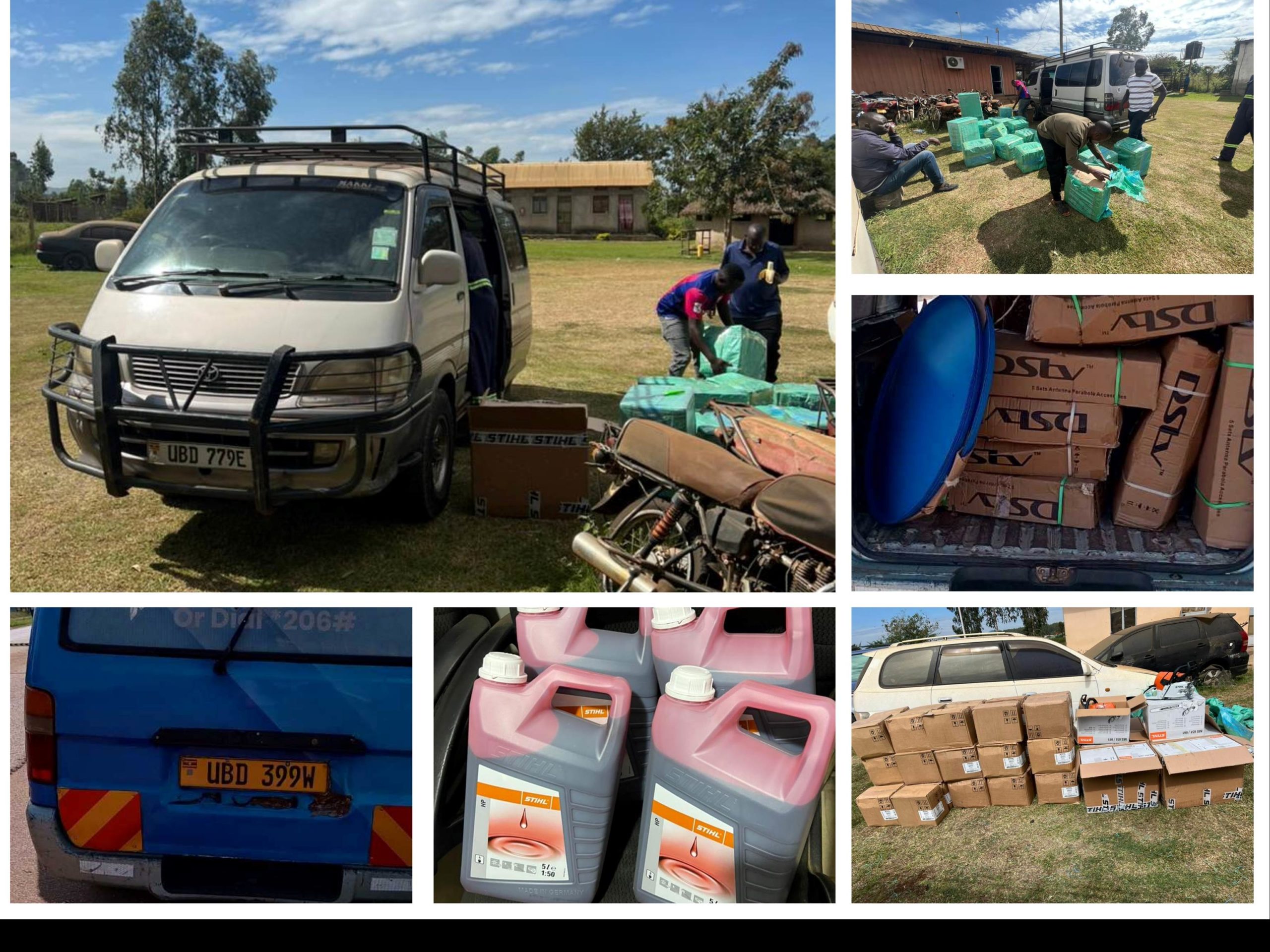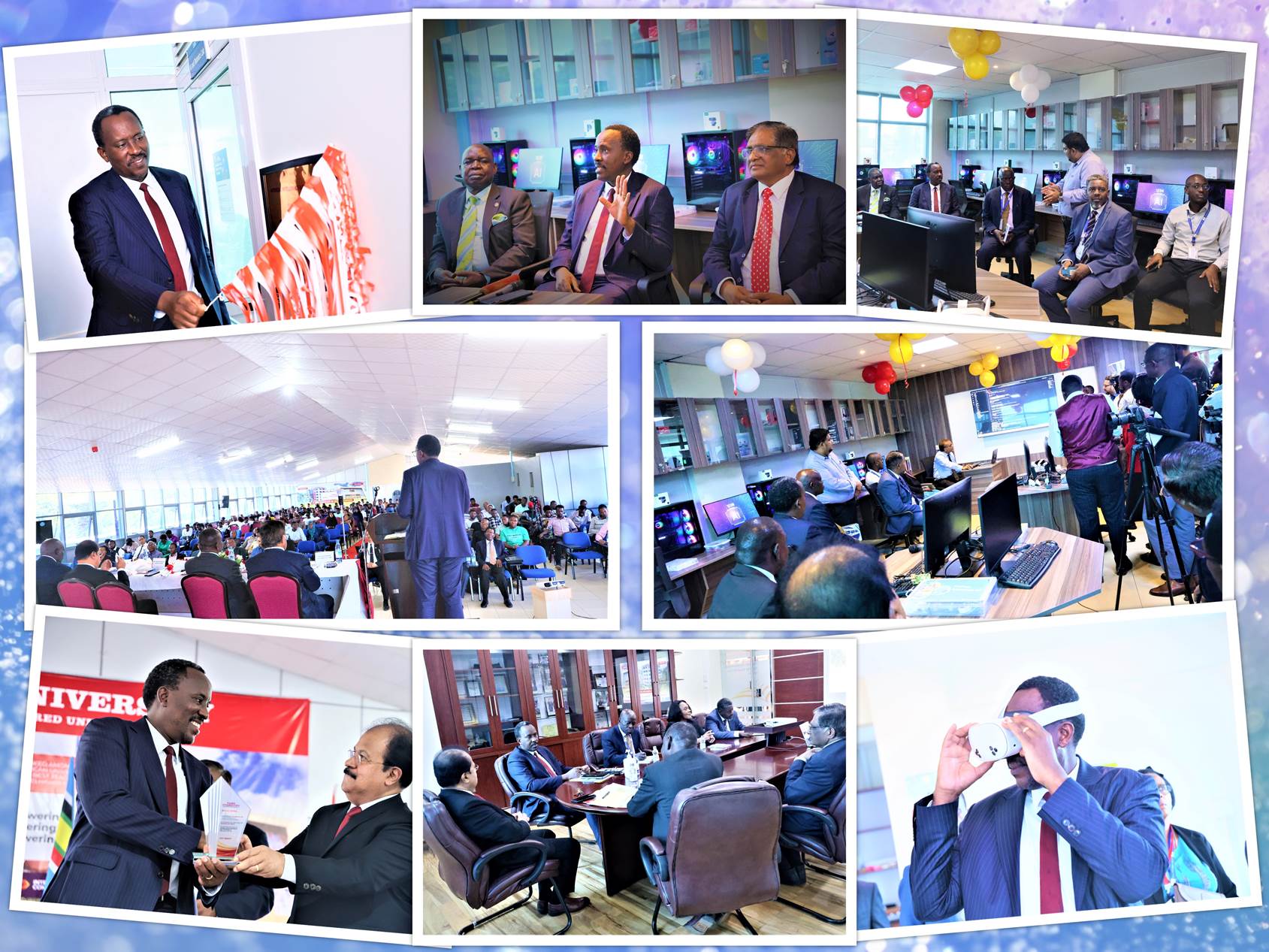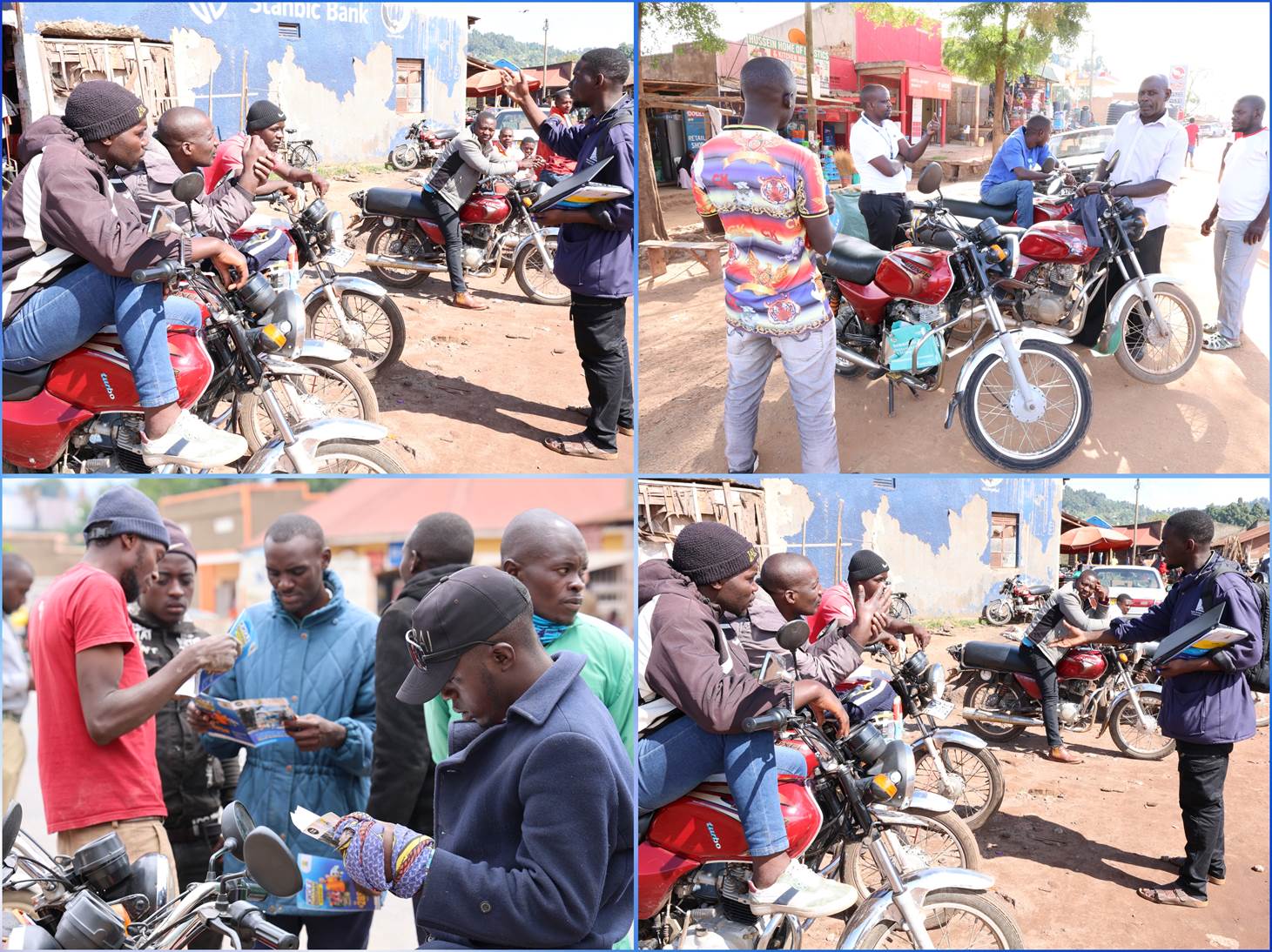By Akinyi Winiefred
Malaba is a town located in Tororo district on the border of Uganda and Kenya. The town hosts the Malaba One-Stop Border Post, which over sees 500 trucks cross through daily.
Aside from serving as a gateway for trade, the town has become a hub for smugglers using porous routes to ferry contraband from neighboring Kenya. It is against this backdrop that the URA has heightened surveillance in the town to counter the vice and protect compliant traders.
Late last week, URA enforcement in the town received information of smuggled items stashed in a safe house awaiting transportation in the night.
The team got to work mounting an undercover operation that saw them recover 10 Stihl power saw machines made in Germany, 128 jerrycans of Stihl 2T lubricants, 192 jerrycans of Shell Advance Lubricants, and 40 sets of DSTV kits smuggled from Kenya.
Two vehicles, a Toyota Super custom registration number UBD 779E and a Toyota Hiace UBD 399W, were also impounded during the operation.
According to Showali Kigozi, the area in-charge, the operation stretched from Kalait to the Busolwe trading center in Butaleja district amidst counter-surveillance from the smugglers.
“Despite challenges such as extensive surveillance, political interference, and the ever-evolving tactics of smugglers, the team’s dedication and strategic approach yielded significant results,” he said, reminiscing about the success.
Kigozi notes that they have embarked on the revenue recovery process and offense management.
According to Section 200 of the East African Community Customs Management Act (EACCMA), the perpetrators, in this case, are liable on conviction to imprisonment for a term not exceeding five years or to a fine equal to 50% of the dutiable value of the goods, or both.
Additionally, the cars impounded in this operation risk forfeiture to the state.
Porous borders continue to pose a risk in the fight against illicit trade. To counter the uncustomed goods from flooding the market, Ibrahim Bbossa, the Assistant Commissioner for Public and Corporate Affairs at URA, says the authority has set in place strategies including the use of non-intrusive inspection technology, informers, conducting raids on suspected stores, and increasing enforcement in high-risk areas, among others.










